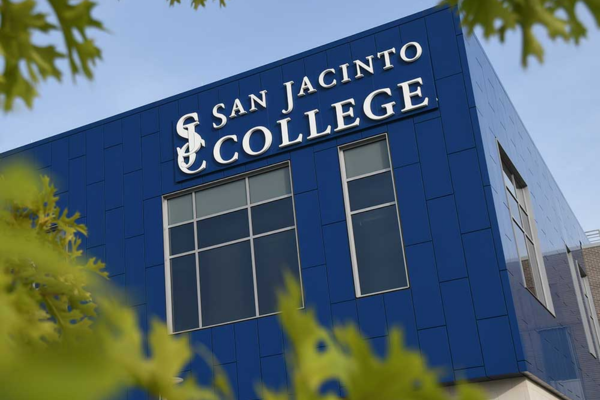Life Sciences
From Setback to Strategy: How San Jacinto College and Generation Park are Building Houston’s Biotech Workforce
4/28/25
Like every city, Houston experiences setbacks. The difference is Houston doesn’t dwell on them. It adapts, rebuilds and always comes back stronger. That’s exactly what the region is doing with biotech, an emerging sector where Houston is determined to lead.
The region’s economic development strategy shifted after losing Amazon’s HQ2 in 2019. Leaders doubled down on partnerships, long-term planning and industry diversification.
In 2022, there was another missed opportunity. A leading pharmaceutical company’s decision to choose North Carolina highlighted another critical gap in Houston – the need for a biotech workforce.
Rather than retreat, Houston responded with action. San Jacinto College (SJC) and Generation Park launched a bold partnership to build a biotech talent pipeline, ensuring the region is ready for the next big opportunity.
Learn more about Houston’s life sciences industry and how local colleges and businesses are working together to build the region’s biotech workforce.
SJC & Generation Park Partnership
Ryan McCord, McCord Development President and the visionary behind Generation Park, had long believed Houston could lead in life sciences. But as biotech investments flowed to other cities, it became clear: infrastructure alone wasn’t enough.
While Houston’s life sciences sector has grown steadily over the past decade— recording the second-highest employment growth rate among major markets from 2022 to 2023, according to CBRE’s 2025 Life Sciences Outlook—the region continued to face a shortage of technicians to support critical functions such as laboratory setup, data collection and research observation.
That’s when McCord turned to SJC, a proven leader in workforce development with a track record of building industry-aligned programs. Together, they launched the Center for Biotechnology, a workforce-first solution to close the talent gap and make Houston a top destination for biotech companies.
"San Jacinto College’s Biotechnology Center at Generation Park is the catalyst our region needs to fill the gap in our existing life science ecosystem and accelerate biomanufacturing in Houston,” said McCord in a news release.
Inside the Center for Biotechnology
Opening this summer, the Center for Biotechnology offers more than just textbook knowledge, it delivers hands-on training with industry-grade equipment. At its core is a pilot-scale bioprocessing plant where students will gain real-world experience using the same tools found in commercial facilities.
Click to expand
To develop the curriculum, SJC partnered with the National Institute for Bioprocessing Research and Training (NIBRT), a global leader in biopharma education. That partnership makes the center the exclusive provider of NIBRT-licensed training in the southern U.S., and one of just six institutions worldwide with this distinction.
“Building on San Jacinto College’s established track record of working with industry to develop need-specific training and accreditation centers, the partnership with NIBRT represents an opportunity to train the workforce that Houston's biopharma industry needs to sustain its rapid growth,” said Brenda Hellyer, Chancellor of SJC, in a statement. “We also expect to contribute to the global market by training people eager to enter this growing industry from around the United States and beyond.”
The center also offers students exposure to emerging fields like cell and gene therapy. A regional advisory board of life sciences leaders will guide the curriculum to ensure it evolves with industry needs.
Strategic Location
The center is located within Generation Park, one of Houston’s fastest-growing innovation districts, and sits just steps away from BioHub Two, a 45-acre biomanufacturing campus currently under development. Once complete, BioHub Two will feature 500,000 square feet of state-of-the-art lab, office and cGMP manufacturing space, designed to attract life sciences companies to the region.
Click to expand
What makes this proximity so powerful is the built-in connection between workforce development and industry growth. Companies moving into BioHub Two won’t just gain access to premier infrastructure, they’ll have a direct pipeline to trained, job-ready talent.
Spanning 4,300 acres, Generation Park is also home to leading institutions like Lone Star College and companies such as TechnipFMC and Apache Industrial Services. Beyond businesses, the district offers a great quality of life, surrounded by restaurants, shops, green space and residential options, all just a short drive from George Bush Intercontinental Airport and Port Houston.
Positioned for the Future
The partnership between SJC and Generation Park is more than a response to a missed opportunity – it’s a bold investment in Houston’s future. The Center for Biotechnology demonstrates how aligning education with industry needs can unlock long-term growth, strengthen the region’s talent pipeline, and position Houston as a national hub for life sciences innovation and biomanufacturing.
Read More

 The Houston Report
The Houston Report



















